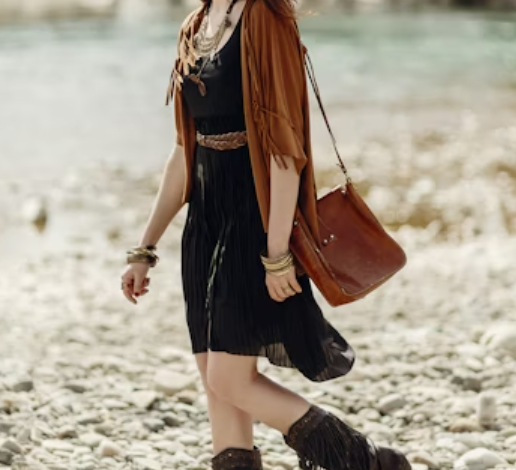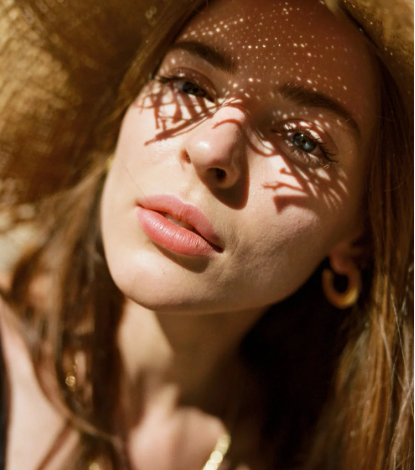
Fashion Icons Throughout History: Influential Personalities Who Shaped Style
Fashion has always been a significant aspect of human culture, reflecting society’s values, beliefs, and aesthetics. Over the course of history, certain individuals have emerged as fashion icons, shaping trends and influencing style choices for generations to come. These trailblazers, through their distinct sense of fashion, have left an indelible mark on the fashion industry and society as a whole. From ancient civilizations to the contemporary world, let’s explore the remarkable journey of fashion icons and their enduring legacies.
Early Fashion Icons
Fashion icons have existed since ancient times, albeit in different forms. In ancient civilizations such as Egypt, Greece, and Rome, influential figures like Cleopatra and Julius Caesar were known for their extravagant attire, setting trends that were emulated by their subjects. Similarly, Chinese dynasties had empresses and emperors whose clothing choices influenced the fashion preferences of the entire nation. These early fashion icons showcased their wealth, power, and social status through their clothing, leaving an indelible mark on the history of fashion.
Renaissance and Baroque Period
The Renaissance and Baroque eras witnessed a resurgence in artistic expression, with painters and artists becoming influential fashion icons. These creative minds not only excelled in their artistic pursuits but also played a pivotal role in shaping the fashion trends of their time. Artists like Leonardo da Vinci and Michelangelo influenced the clothing styles of the Renaissance, emphasizing elegance, refinement, and symmetry. In the Baroque period, painters like Peter Paul Rubens and Anthony van Dyck popularized extravagant and opulent fashion choices, showcasing the grandeur and wealth of the upper classes.
19th Century Icons
The advent of industrialization in the 19th century brought about significant changes in the fashion landscape. With the mass production of textiles and clothing, fashion became more accessible to the middle class. During this period, fashion icons such as Queen Victoria of England set the stage for Victorian fashion. The corseted silhouette, voluminous skirts, and intricate details became the hallmark of the era. These fashion icons not only dictated style but also represented the social norms and values of the time.
20th Century Icons
The 20th century witnessed the rise of fashion magazines and media, catapulting fashion icons into the global spotlight. Figures like Coco Chanel, with her revolutionary designs and modern approach to women’s fashion, challenged the status quo and redefined elegance. Other iconic personalities like Audrey Hepburn, Marilyn Monroe, and James Dean captured the imagination of the public, becoming style icons whose influence transcended the silver screen. These individuals not only shaped fashion trends but also embodied the spirit of their time, leaving an indelible mark on popular culture.
Contemporary Fashion Icons
In the contemporary world, fashion icons continue to emerge from various fields, with celebrities and influencers wielding significant influence over style choices. Actors, musicians, and social media personalities have become trendsetters, using their platforms to showcase unique fashion sensibilities. Figures like Rihanna, with her Fenty fashion line, have disrupted the industry, promoting inclusivity and diversity. The contributions of modern fashion icons go beyond clothing, encompassing lifestyle choices, sustainability, and advocacy for social causes.
Cross-Cultural Fashion Icons
Fashion icons are not limited to a particular region or culture; they transcend boundaries and inspire people across the globe. Influencers from different regions, such as Anna Wintour, the editor-in-chief of Vogue, and Rei Kawakubo, the founder of Comme des Garçons, have played a crucial role in bridging cultural gaps and introducing diverse styles to the fashion world. Their innovative designs and fearless approach have challenged conventional norms, enriching the fashion landscape with fresh perspectives.

Fashion Icons’ Influence on Society
Fashion icons wield immense influence, not only within the fashion industry but also in society as a whole. Their choices impact not just clothing trends but also attitudes, values, and self-expression. Fashion has the power to empower individuals, foster creativity, and challenge societal norms. Through their unique styles, fashion icons inspire people to embrace their individuality, experiment with self-expression, and celebrate diversity.
Conclusion
Fashion icons throughout history have left an indelible mark on the world of style. From ancient civilizations to the contemporary era, these influential personalities have shaped fashion trends, challenged norms, and inspired generations. Their creative vision and fearless approach have transformed fashion into a powerful form of self-expression. As we move forward, fashion icons will continue to redefine and reshape the fashion landscape, paving the way for new trends, ideas, and narratives.
FAQs
1. Can fashion icons still have an impact in the digital age?
Absolutely! In fact, fashion icons in the digital age have a broader reach and influence than ever before. Social media platforms and digital communication allow fashion icons to connect directly with their audience, transcending geographical boundaries and cultural barriers.
2. Are fashion icons only celebrities?
No, fashion icons can come from various fields and backgrounds. While celebrities often dominate the fashion spotlight, influencers, designers, stylists, and even ordinary individuals can become fashion icons through their unique sense of style and ability to inspire others.
3. How do fashion icons shape trends?
Fashion icons shape trends by introducing innovative styles, challenging conventional norms, and showcasing their personal preferences. Their choices are often amplified by media and fashion publications, reaching a wide audience and influencing consumer behavior.
4. Are fashion icons limited to clothing choices?
No, fashion icons encompass more than just clothing choices. They embody a lifestyle, attitude, and personal brand. Fashion icons often extend their influence to accessories, beauty, grooming, and even home decor, showcasing a holistic approach to style.
5. Can anyone become a fashion icon?
While anyone can develop a personal sense of style and become an influential figure within their own circles, becoming a widely recognized fashion icon requires a combination of talent, creativity, influence, and the ability to capture the zeitgeist. It often involves a unique blend of charisma, vision, and a distinct perspective on fashion.


